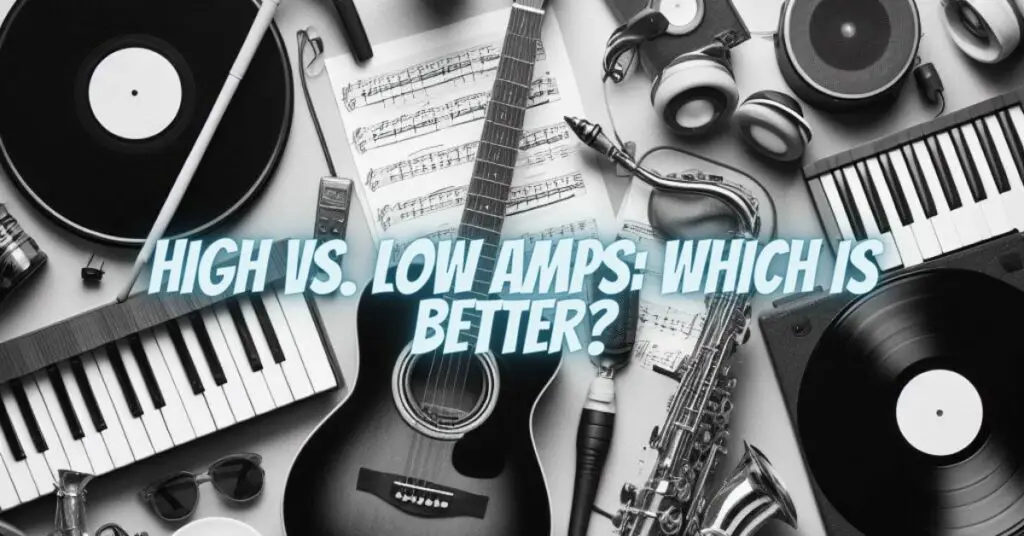Whether higher amps is better or worse depends on the context. In general, higher amps means more power, but it can also mean more heat, more weight, and more cost.
Here are some examples of where higher amps can be beneficial:
- Audio equipment: Higher amps can improve the sound quality of audio equipment by providing more power to the speakers. This can result in louder, clearer sound with less distortion. For example, a higher amp rating on a home theater receiver can allow it to drive larger, more powerful speakers to louder volumes without distorting the sound.
- Power tools: Higher amps can make power tools more powerful and efficient. This can be beneficial for tasks such as drilling, sawing, and sanding. For example, a higher amp rating on a drill can allow it to drill through tougher materials more easily.
- Electric vehicles: Higher amps can give electric vehicles more range and power. This can make them more practical for long-distance travel and heavy-duty use. For example, a higher amp rating on an electric car can allow it to travel further on a single charge and accelerate more quickly.
However, there are also some potential drawbacks to higher amps:
- Heat: Higher amps can generate more heat. This can be a problem for electronic devices, which can overheat and fail if they are not properly cooled. For example, a high amp rating on a laptop computer can cause it to overheat if it is not used in a well-ventilated area.
- Weight: Higher amps can also mean more weight. This can be a problem for portable devices and applications where weight is a concern. For example, a higher amp rating on a cordless drill can make it heavier and more difficult to use for extended periods of time.
- Cost: Higher amps can also be more expensive. This is because devices and components that can handle higher amps are typically more complex and costly to manufacture. For example, a higher amp rating on a solar panel can make it more expensive to purchase.
Overall, whether higher amps is better or worse depends on the specific application. If you need more power, then higher amps is better. However, if you are concerned about heat, weight, or cost, then you may want to consider a lower amp device or component.
Here are some additional things to consider when choosing between higher and lower amps:
- Your needs: What do you need the device or component for? If you need it for a demanding task, such as powering a high-wattage audio system or driving a powerful electric motor, then you will need a device or component with higher amps.
- Your budget: How much money can you afford to spend? Higher amp devices and components are typically more expensive.
- Your environment: Where will you be using the device or component? If you will be using it in a hot environment, you may want to consider a lower amp device or component to avoid overheating.
- Your safety: Some high amp devices and components can be dangerous if they are not used properly. It is important to read the instructions carefully and follow all safety precautions when using high amp devices and components.
If you are unsure which amp rating is right for you, it is always best to consult with a qualified professional.
Here is an example of how higher amps can be both better and worse, depending on the context:
Imagine you are buying a new electric car. You have two options: a car with a lower amp rating and a car with a higher amp rating. The car with the lower amp rating is less expensive and lighter, but it has a shorter range and less power. The car with the higher amp rating is more expensive and heavier, but it has a longer range and more power.
In this case, the higher amp rating is better if you need a car with a long range and a lot of power. However, the lower amp rating is better if you are on a budget or you need a car that is light and easy to maneuver.
Ultimately, the best way to decide whether higher amps is better or worse is to weigh the pros and cons carefully and choose the option that is best for your specific needs.

